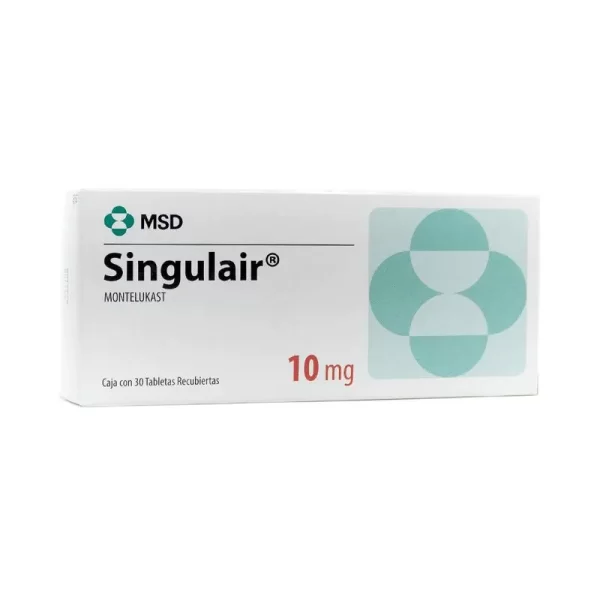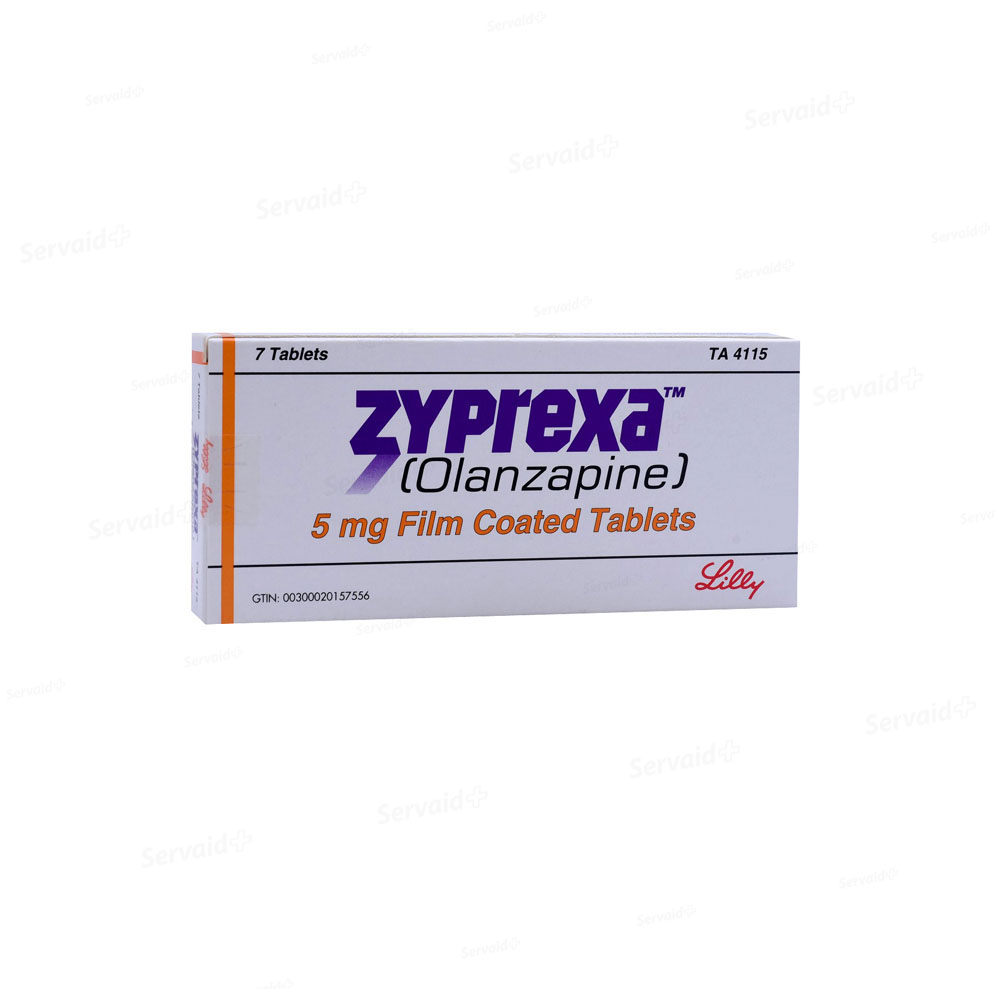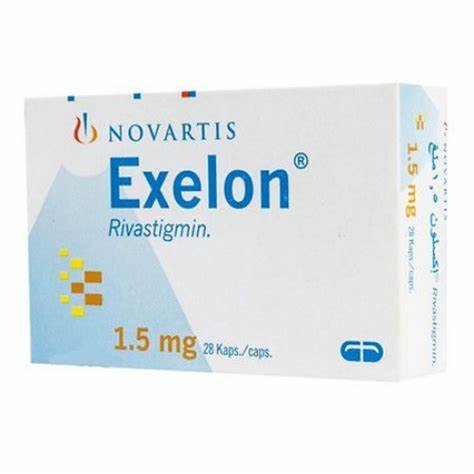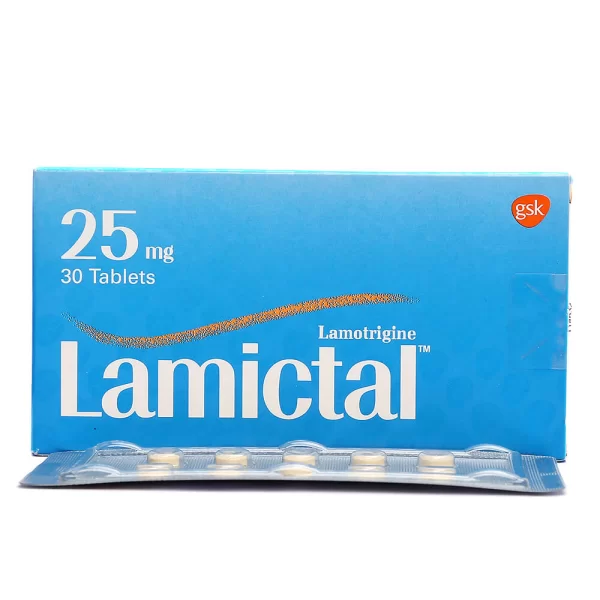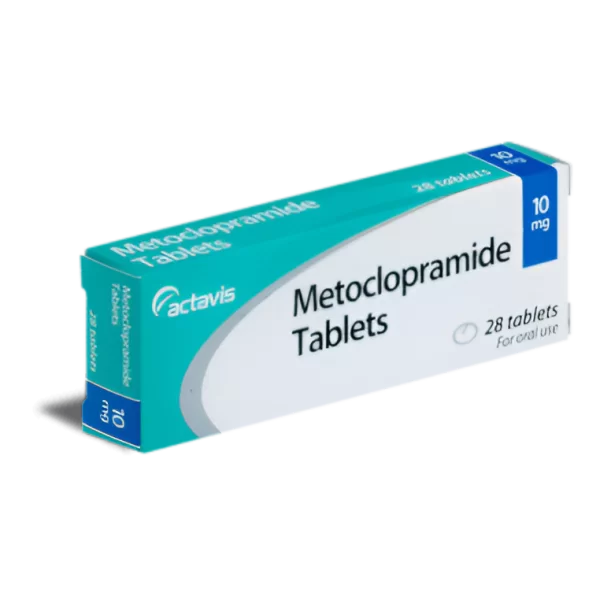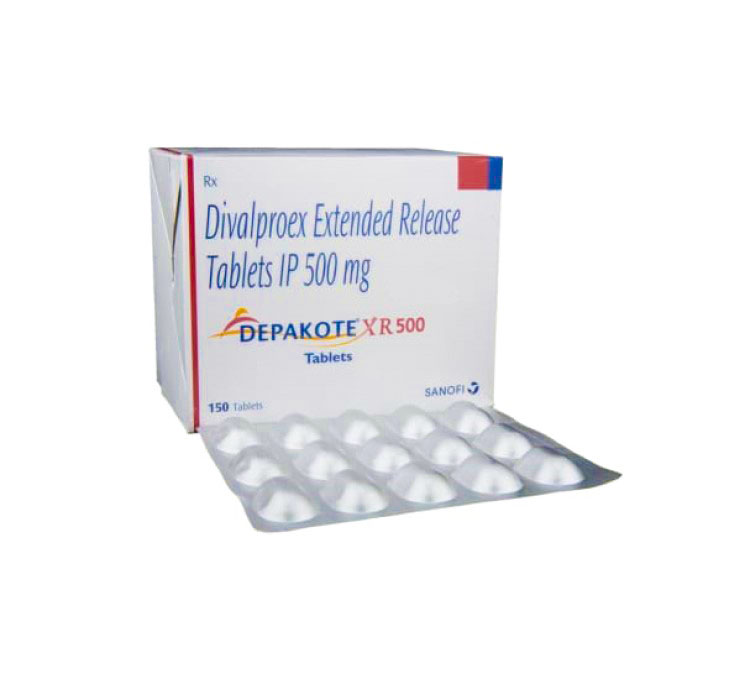
Depakote
Depakote - 500mg
| Product | Per Pill | Savings | Per Pack | Order |
|---|---|---|---|---|
| 30 pills | $1.21 | $36.23 | Buy Now | |
| 60 pills | $0.96 | $15.02 | $72.45 $57.43 | Buy Now |
| 90 pills | $0.87 | $30.03 | $108.67 $78.64 | Buy Now |
| 120 pills | $0.83 | $45.05 | $144.90 $99.85 | Buy Now |
| 180 pills | $0.79 | $75.09 | $217.35 $142.26 | Buy Now |
| 270 pills | $0.76 | $120.14 | $326.03 $205.89 | Buy Now |
| 360 pills | $0.75 | $165.19 | $434.70 $269.51 | Buy Now |
Depakote - 250mg
| Product | Per Pill | Savings | Per Pack | Order |
|---|---|---|---|---|
| 30 pills | $1.16 | $34.66 | Buy Now | |
| 60 pills | $0.92 | $13.99 | $69.31 $55.32 | Buy Now |
| 90 pills | $0.84 | $27.98 | $103.97 $75.99 | Buy Now |
| 120 pills | $0.81 | $41.97 | $138.63 $96.66 | Buy Now |
| 180 pills | $0.77 | $69.94 | $207.93 $137.99 | Buy Now |
| 270 pills | $0.74 | $111.91 | $311.91 $200.00 | Buy Now |
| 360 pills | $0.73 | $153.87 | $415.87 $262.00 | Buy Now |
Overview
General Introduction Depakote (divalproex sodium) is a medication commonly used to treat various neurological and psychiatric conditions, including epilepsy, bipolar disorder, and migraine prevention. Approved by the FDA in 1983, Depakote works by increasing the levels of gamma-aminobutyric acid (GABA) in the brain, which helps to stabilize mood and prevent seizures.
Key Benefits and Unique Properties
- Seizure Control: Effective in treating various types of seizures, including complex partial seizures and absence seizures.
- Mood Stabilization: Widely used for the management of bipolar disorder, helping to stabilize mood and reduce the frequency of manic and depressive episodes.
- Migraine Prevention: Proven to reduce the frequency and severity of migraine headaches.
- Multiple Formulations: Available in various formulations, including tablets, extended-release tablets, and sprinkle capsules, catering to different patient needs.
- Well-Studied: Extensive clinical research supports its efficacy and safety in treating multiple conditions.
Effectiveness Clinical studies have shown that Depakote is highly effective in controlling seizures, stabilizing mood in bipolar disorder, and preventing migraines. Patients often experience significant improvement in symptoms with regular use. The medication's ability to increase GABA levels in the brain helps to reduce neuronal excitability, leading to symptom control.
Safety and Tolerability Depakote is generally well-tolerated when used at recommended doses. Common side effects include gastrointestinal disturbances, weight gain, and drowsiness. Serious side effects, such as liver toxicity, pancreatitis, and thrombocytopenia, are rare but can occur, especially with long-term use. Regular monitoring and patient education are essential to ensure safe use.
Indications for Use
Diseases and Conditions Treated Depakote is primarily indicated for the treatment of epilepsy, bipolar disorder, and migraine prevention. By stabilizing neuronal activity and mood, Depakote helps manage these conditions and provides symptom relief. It is also sometimes used off-label for other psychiatric and neurological disorders.
Primary Symptoms and Indications
- Epilepsy: Effective in controlling various types of seizures, including complex partial seizures and absence seizures.
- Bipolar Disorder: Helps stabilize mood and reduce the frequency of manic and depressive episodes.
- Migraine Prevention: Reduces the frequency and severity of migraine headaches.
- Off-Label Uses: Sometimes prescribed for conditions like schizoaffective disorder and certain types of chronic pain due to its mood-stabilizing and neuroprotective properties.
Dosage and Administration
Dosage and Intake The recommended dose for Depakote varies depending on the condition being treated. For epilepsy, the typical dose ranges from 10 to 60 mg/kg/day, divided into multiple doses. For bipolar disorder, the dose usually starts at 750 mg per day and can be adjusted based on response and tolerability. For migraine prevention, the usual dose is 250 to 500 mg twice daily. Depakote should be taken with food to minimize gastrointestinal side effects, and the dosage may need adjustment in patients with hepatic impairment.
Timing and Frequency
- Epilepsy: Taken two to three times daily, depending on the formulation and specific patient needs.
- Bipolar Disorder and Migraine Prevention: Typically taken twice daily, with consistent timing to maintain stable blood levels.
- Extended-Release Formulation: Allows for once-daily dosing, improving patient compliance.
Additional Recommendations
- Hydration: Maintain adequate hydration, especially if experiencing gastrointestinal side effects.
- Missed Dose: If a dose is missed, take it as soon as remembered unless it is almost time for the next dose. Do not double the dose to make up for the missed one. Continue with the regular dosing schedule to maintain consistent blood levels.
Mechanism of Action
Description of Mechanism Depakote works by increasing the levels of gamma-aminobutyric acid (GABA) in the brain. GABA is an inhibitory neurotransmitter that reduces neuronal excitability. By enhancing GABA activity, Depakote helps stabilize mood, prevent seizures, and reduce migraine frequency.
Biochemical Processes The primary action of Depakote involves inhibiting the enzyme GABA transaminase, which breaks down GABA. By inhibiting this enzyme, Depakote increases GABA levels, enhancing its inhibitory effects on neuronal activity. This biochemical process results in reduced neuronal excitability and stabilization of mood.
Physiological Effects
- Organ and System Functions: Reduces the frequency and severity of seizures, stabilizes mood, and prevents migraines by modulating neuronal activity in the brain.
- Therapeutic Effects: Provides significant relief from symptoms of epilepsy, bipolar disorder, and migraines, improving overall quality of life for patients.
Composition
Active Ingredients The active ingredient in Depakote is divalproex sodium, a compound that dissociates into valproate ions in the gastrointestinal tract. These ions increase GABA levels in the brain, exerting their therapeutic effects.
Inactive Ingredients Inactive ingredients vary by formulation but may include lactose, magnesium stearate, microcrystalline cellulose, titanium dioxide, and other excipients that stabilize the formulation and ensure proper absorption and efficacy of the medication.
Side Effects
General Introduction Understanding potential side effects is crucial for the safe use of Depakote. Patients should be aware of both common and serious side effects to monitor their health effectively while on the medication.
Possible Side Effects
- Common Side Effects: Nausea, vomiting, diarrhea, drowsiness, dizziness, weight gain, and hair loss are commonly reported. These side effects are generally mild and transient.
- Less Common Side Effects: Some patients may experience tremors, blurred vision, or changes in appetite.
- Serious Side Effects: Rare but serious side effects include liver toxicity, pancreatitis, thrombocytopenia, and severe allergic reactions. Immediate medical attention is required if any serious side effects occur.
Frequency and Severity Common side effects are generally mild and do not significantly interfere with daily activities. Severe side effects are rare but can be serious, necessitating immediate medical intervention. Regular follow-ups and patient education on correct usage can minimize risks.
Prevention of Side Effects
General Introduction Preventing side effects is key to maximizing the therapeutic benefits of Depakote. By following preventive measures, patients can reduce the likelihood of experiencing adverse reactions.
Tips for Prevention
- Follow Dosage Instructions: Use Depakote as directed to avoid excessive use, which can lead to adverse effects like severe gastrointestinal symptoms or liver toxicity.
- Stay Hydrated: Adequate hydration can help reduce the risk of gastrointestinal side effects.
- Consult Healthcare Providers: Regular consultations can help manage and prevent adverse reactions. Inform your healthcare provider about any other medications or supplements to avoid potential interactions.
Contraindications
General Introduction Understanding contraindications ensures the safe use of Depakote. Certain conditions and diseases may preclude the use of this medication.
Conditions and Diseases
- Liver Disease: Depakote is contraindicated in patients with severe hepatic impairment due to the risk of liver toxicity.
- Urea Cycle Disorders: Patients with known urea cycle disorders should not use Depakote, as it can lead to hyperammonemia and encephalopathy.
- Hypersensitivity: Patients with a known hypersensitivity to divalproex sodium or any of its components should not use this medication. Allergic reactions can include symptoms such as rash, itching, swelling, and difficulty breathing.
Warnings/Precautions
General Introduction Following precautions is essential to ensure the safe and effective use of Depakote. Patients should be informed about potential risks and how to mitigate them.
Important Warnings
- Liver Toxicity: Depakote can cause severe liver damage, particularly within the first six months of treatment. Patients should undergo regular liver function tests to monitor for signs of liver injury.
- Pancreatitis: There have been reports of life-threatening pancreatitis in patients taking Depakote. Any signs of abdominal pain, nausea, or vomiting should be reported to a healthcare provider immediately.
- Thrombocytopenia: Depakote can cause a decrease in platelet count, increasing the risk of bleeding. Regular blood tests are recommended to monitor platelet levels.
Precautions
- Regular Monitoring: Regular check-ups with healthcare providers are essential to monitor for potential side effects, especially liver function and blood counts.
- Patient Education: Patients should be educated on the proper use of Depakote, recognizing signs of serious side effects, and when to seek medical help.
Missed Dose
General Introduction Proper management of missed doses helps maintain effective symptom control. Patients should be aware of how to handle missed doses to avoid disruptions in their treatment regimen.
What to Do If a Dose Is Missed If a dose is missed, it should be taken as soon as remembered unless it is almost time for the next dose. In such cases, the missed dose should be skipped, and the patient should continue with the regular dosing schedule. It is important not to double the dose to make up for the missed one, as this can increase the risk of side effects.
Tips for Adherence
- Reminders: Use alarms or medication organizers to help remember to take Depakote as prescribed.
- Routine: Take the medication at the same time each day, preferably with food, to develop a routine and reduce the chances of missing a dose.
Drug Interaction
General Introduction Understanding potential drug interactions helps in avoiding adverse effects and ensuring the effectiveness of Depakote. Patients should be aware of common interactions and how to manage them.
Examples of Interactions
- Aspirin: Concurrent use with aspirin can increase valproate levels and the risk of side effects.
- Warfarin: Depakote can increase the effect of warfarin, leading to an increased risk of bleeding. Monitoring INR levels is recommended.
- Other Antiepileptic Drugs: Depakote can interact with other antiepileptic drugs like phenytoin and carbamazepine, altering their levels and effects.
How to Avoid Negative Interactions
- Medication Review: Regularly review all medications with healthcare providers to identify and manage potential interactions before they cause adverse effects.
- Inform Healthcare Providers: Always inform healthcare providers of all medications being taken, including over-the-counter drugs and supplements, to ensure safe and effective use of Depakote.
Overdose
Symptoms of Overdose Overdosing on Depakote can lead to symptoms such as confusion, drowsiness, heart rhythm changes, fainting, and significant sedation. In extreme cases, overdose can result in coma or death. Immediate medical attention is necessary if an overdose is suspected to prevent serious complications and ensure prompt treatment.
Actions to Take in Case of Overdose
- Immediate Measures: Seek emergency medical attention or call a poison control center immediately if an overdose is suspected. It is important to provide healthcare professionals with information about the amount of medication taken and the time of ingestion.
- First Aid: While waiting for medical help, provide supportive care to the affected individual. This includes maintaining an open airway, monitoring vital signs, and keeping the person comfortable. Do not induce vomiting unless instructed by a healthcare professional. In a medical setting, treatments may include gastric lavage, activated charcoal administration, and symptomatic management to address specific overdose symptoms.
Pharmacokinetics
Absorption Depakote is rapidly absorbed following oral administration, with peak plasma concentrations occurring within 3 to 4 hours for the immediate-release form and 7 to 14 hours for the extended-release form. The bioavailability is approximately 81%, and food can affect the absorption rate but not the overall extent of absorption.
Distribution Once absorbed, Depakote is widely distributed throughout the body, with a volume of distribution of approximately 92 L. It is highly bound to plasma proteins, primarily albumin, which facilitates its transport to the target tissues. The medication’s distribution characteristics ensure that it reaches the sites of action quickly and effectively, providing prompt relief from symptoms.
Metabolism Depakote is extensively metabolized in the liver by cytochrome P450 enzymes, primarily CYP2C9, CYP2C19, and CYP2A6. It undergoes glucuronidation and beta-oxidation, resulting in the formation of inactive metabolites. The metabolism of Depakote ensures that it is effectively cleared from the body, preventing accumulation and potential toxicity.
Elimination The metabolites of Depakote are primarily excreted via the urine, with approximately 30-50% of the dose excreted unchanged in the feces. The elimination half-life is approximately 9 to 16 hours, supporting twice-daily or once-daily dosing for the extended-release form. This elimination profile ensures consistent therapeutic effects and minimal risk of accumulation with regular use.
Dosage Forms
Available Forms and Dosages Depakote is available in several dosage forms, including delayed-release tablets (125 mg, 250 mg, 500 mg), extended-release tablets (250 mg, 500 mg), and sprinkle capsules (125 mg). These various forms provide flexibility in administration, catering to different patient needs and preferences.
Advantages of Each Form
- Delayed-Release Tablets: Convenient for twice-daily dosing, providing consistent symptom control.
- Extended-Release Tablets: Ideal for once-daily dosing, improving patient compliance and convenience.
- Sprinkle Capsules: Suitable for patients who have difficulty swallowing tablets. The capsules can be opened and sprinkled on soft food, making it easier to administer.
Pregnancy and Breastfeeding
Safety of Use The safety of Depakote during pregnancy and breastfeeding has not been fully established. Animal studies have shown some adverse effects on the fetus, and there is a risk of birth defects and cognitive impairment in human infants exposed to Depakote in utero. The medication should be used during pregnancy only if the potential benefits justify the potential risks to the fetus. Healthcare providers should carefully evaluate the risks and benefits before prescribing Depakote to pregnant women.
Recommendations for Pregnant and Nursing Mothers
- Pregnancy: Use Depakote with caution during pregnancy, particularly in the first trimester. Pregnant women should consult their healthcare provider before starting or continuing this medication. Comprehensive risk-benefit analysis is essential to ensure the safety of both mother and child.
- Breastfeeding: Depakote is excreted in human milk. Due to the potential for serious adverse reactions in nursing infants, a decision should be made whether to discontinue nursing or discontinue the drug, taking into account the importance of the drug to the mother. Nursing mothers should consult their healthcare provider to weigh the benefits and risks.
- Consultation: Pregnant and nursing mothers should have regular consultations with their healthcare provider to monitor their condition and the health of their baby. Adjustments to the treatment plan may be necessary based on the mother’s and baby’s health status.
Storage Conditions
Storage Recommendations Depakote should be stored at room temperature between 20°C to 25°C (68°F to 77°F). The medication should be kept in its original container, tightly closed, and out of reach of children. Protecting the medication from light and moisture helps maintain its stability and effectiveness. These storage conditions ensure that the medication retains its potency throughout its shelf life, providing consistent therapeutic effects.
Temperature and Other Conditions
- Temperature: Avoid storing Depakote in extreme temperatures (above 30°C or below 15°C). High temperatures can degrade the active ingredient, while low temperatures can affect the tablet’s integrity.
- Moisture Protection: Keep the medication away from high humidity environments such as bathrooms. Exposure to moisture can cause the tablets to break down or lose potency.
- Shelf Life: Check the expiration date on the packaging and do not use the medication past this date. Proper adherence to storage guidelines ensures the medication remains effective throughout its shelf life. If the medication shows any signs of deterioration, such as changes in color or texture, it should be discarded.
Clinical Trials and Efficacy
Overview of Clinical Trials Depakote has been evaluated in numerous clinical trials to assess its efficacy and safety in treating epilepsy, bipolar disorder, and migraine prevention. These studies typically involve large patient populations with various demographics and conditions. The trials are designed to measure improvements in symptoms, frequency of episodes, and overall quality of life. The results consistently demonstrate the medication’s ability to provide significant relief from symptoms, supporting its use in clinical practice.
Key Findings and Conclusions
- Efficacy: Clinical trials consistently show that Depakote significantly reduces the frequency and severity of seizures, stabilizes mood in bipolar disorder, and prevents migraines. These findings highlight the medication’s effectiveness in managing these conditions and enhancing patients’ quality of life.
- Safety: The safety profile of Depakote is well-documented, with a low incidence of severe side effects when used as directed. Long-term studies confirm its tolerability and continued effectiveness over extended periods. Patients generally experience minimal side effects, making it a reliable and safe treatment option for chronic conditions.
- Comparison: Depakote’s efficacy is comparable to other mood stabilizers and antiepileptic drugs and superior to placebo. It provides an effective alternative or adjunctive therapy for patients who need additional control of their symptoms. This makes it a valuable option in the management of epilepsy, bipolar disorder, and migraine prevention.
Conclusion
Summary of Key Points Depakote (divalproex sodium) is an effective and well-tolerated medication for managing epilepsy, bipolar disorder, and migraine prevention. Its mechanism of action involves increasing GABA levels in the brain, stabilizing neuronal activity, and reducing symptoms. Clinical trials have demonstrated its ability to provide significant relief from symptoms, reduce the frequency of episodes, and enhance overall quality of life. The medication is available in various forms and dosages, making it suitable for patients with different needs.
Primary Benefits and General Recommendations Depakote offers several advantages, including its effective seizure control, mood stabilization, and migraine prevention. It is effective in reducing the frequency and severity of seizures, stabilizing mood in bipolar disorder, and preventing migraines. Patients and healthcare providers should consider Depakote for comprehensive management of epilepsy, bipolar disorder, and migraine prevention. Regular monitoring and adherence to prescribed dosages enhance its safety and efficacy. For optimal results, patients should follow their healthcare provider’s instructions and maintain open communication about their treatment progress.
